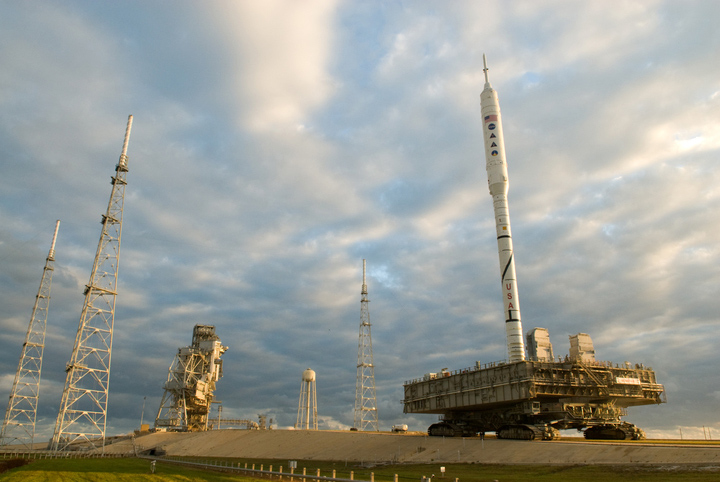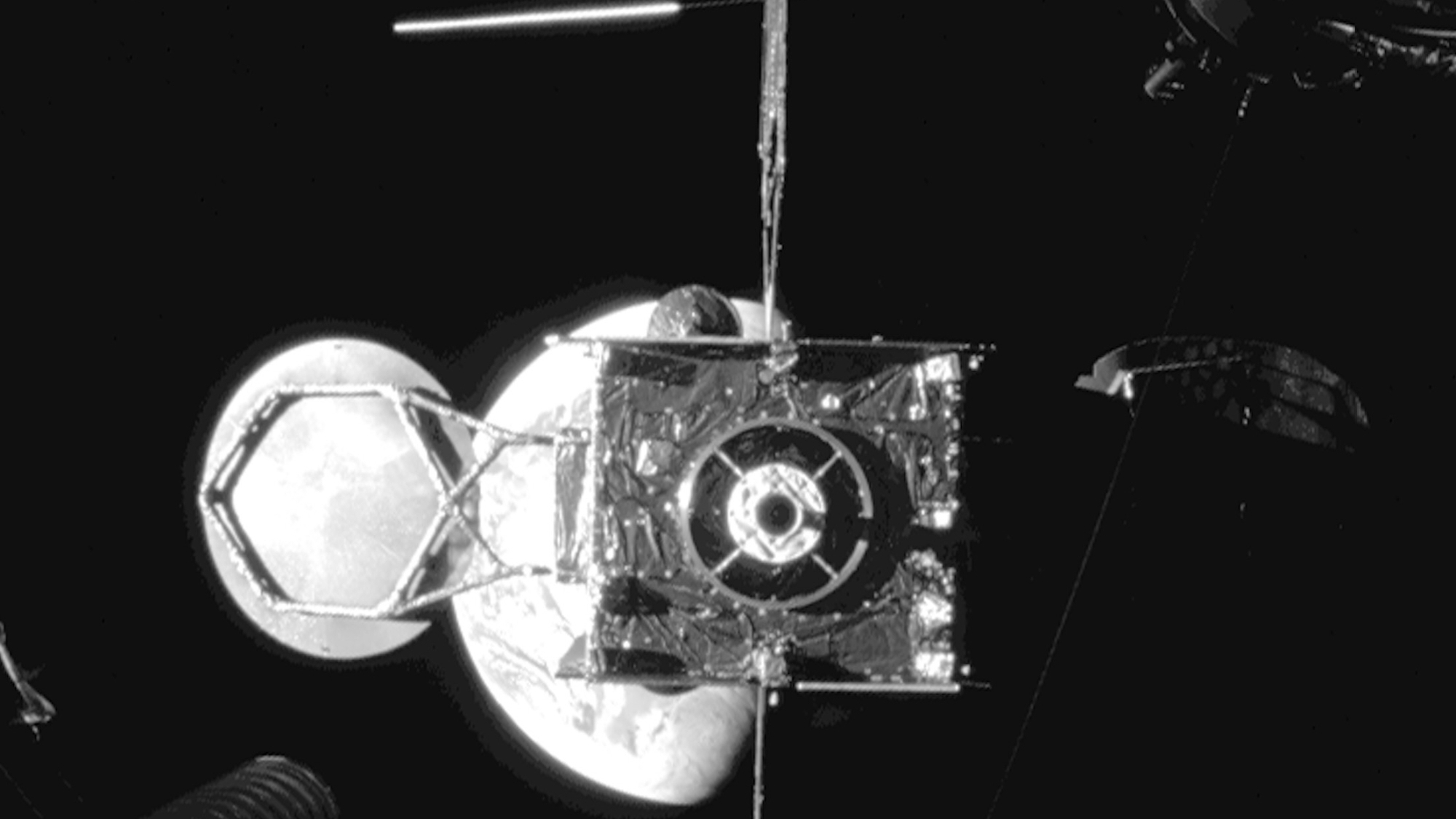NASA Needs a Clear Destination for Space Exploration, Experts Say

NEW YORK — Top space experts on Monday bemoaned the lack of aclear destination in the new NASA space plan proposed by President BarackObama, but they often disagreed on what that new goal should be.
The space luminaries gathered at the Tenth Annual IsaacAsimov Memorial Debate at the American Museum of Natural History here todiscuss the topic, "Moon, Mars and Beyond: Where next for the manned spaceprogram?" The debate was moderated by astronomer Neil deGrasse Tyson,director of the museum's Hayden Planetarium.
Tyson pointed out that the topic was particularly timely,given the announcement earlier this year by the Obama administration of a new planfor NASA under the 2011 budget request.
Moon pioneer and former Apollo astronaut BuzzAldrin chimed in by telephone, arguing that NASA is on the clock toaccomplish something significant before the political will for spaceflight fades.
"I think we need to consider the attention span of thepublic, and the term limit of people in Congress that want to get reelected,"said Aldrin, the second man to walk on the moon. "We want to keep activitygoing that is inspirational for the young people, that is something thathappens within term limits."
In need of a destination
President Obama?s new space proposal calls for thecancellation of the Constellation program, NASA's plan to build Orion capsulesand Ares rockets to take humans back to the moon and beyond. Instead, thepresident directed NASA to support private companies to take up the job offerrying humans to and from the space station and low-Earth orbit, and lettingNASA focus on developing new technologies that could ultimately be used for ahost of space objectives.
Get the Space.com Newsletter
Breaking space news, the latest updates on rocket launches, skywatching events and more!
"It's a fundamental mistake to give NASA $20 billion ayear and not give them a destination," Paul Spudis, a geologist at theLunar and Planetary Institute in Houston, told the public crowd gathered forthe debate. "My feeling is that wherever you go? you've got to picksomething, because if you're not working towards something, you're going to getnothing."
Mars Society founder Robert Zubrin, an aerospace engineer,agreed. Without a specific goal, NASA was likely to waste money designing separatetechnologies that don't work together, he said.
"If you just have technology development programs, youget a thruster without a reactor to power it," Zubrin said. "You haveto develop the complete set that fits together to give you missioncapability."
But another panelist, retired Air Force general LesterLyles, disagreed. He remains confident that NASA will produce usefultechnologies even without a firm destination.
"I have a lot more confidence in the people at NASA andtheir ability to do the right thing. I don't think it's going to be a waste ofmoney," Lyles said.
Lyles served on the Augustinecommittee, the panel appointed by President Obama to research possibledirections for NASA in advance of the budget proposal. Lyles said many of thecommittee's recommendations had been adopted.
"We can do a lot with this particular budget," he added."Yes, I'm a little bit concerned that we don't have a specific destinationand a specific timeframe."
But he said even without those things NASA would not take a"willy-nilly approach."
Where to next?
The panelists sometimes diverged on the question of whereAmerican astronauts should actually be sent.
After the confirmation last year of water ice on the moon, Spudissaid Earth's satellite had become even more attractive as a next destinationbecause it offers some of the raw materials humans need to live in space.
"We're going to have to learn to take what we find inspace and convert it into what we need," Spudis said. "The moon isthe ideal place to do that. The moon is a key stepping stone into the rest ofthe solar system."
But Zubrin argued that the moon was old hat, and the realfrontier is Mars, which has the potential to inspire young people and create anew generation of scientists and engineers.
"That is why Mars, precisely because it is where thechallenge is, has unrepresented economic benefits," he said.
Zubrin highlighted the potential for discovering current orpast microbial life on Mars as one of the benefits of visiting the red planet.
"This is truly grand science and it's truly worthspending some money and risking human life to achieve," he said.
Steven Squyres of Cornell University, who is the principalinvestigator for NASA's MarsExploration Rover project, suggested asteroids as an appealing destination.
"Asteroids are an incredibly rich source of rawmaterials," he said. But he also agreed the moon and Mars are worth goingto.
"I think the next place you have to go is actually themoon," Squyres said. "It's a place to test out and try out the thingsyou need to go to the interesting places."
But he emphasized that the moon was merely a stepping stonetoward the larger goal of getting to Mars.
Another panelist, Kenneth Ford of the Institute for Human& Machine Cognition, who is chairman of the NASA Advisory Council, said itwas important simply to make sure NASA goes somewhere.
?The fact of the matter is, the issue is whether we get togo to any of these places," Ford said. "Most of the hardware thatwill take us to one will take us anywhere."
When can NASA get there?
Many of the panelists also lamented the lack of a deadlinefor space goals in the new Obama administration plan.
Ford said the proposal disappointed him not because itexcised the moon program, but because it did not replace it with a concreteobjective and a concrete time frame in which to achieve it.
"The response that I had was not a response to seeingthe moon not in the plan, but it was a response to seeing the lack of a timeline,"Ford said.
Zubrin argued that wherever we go, it better be soon,because plans that take too long to perform often lose their political support.
"You can't reach Mars in 30 years, you can't reach Marsin 20 years," he said. "If you want to get to Mars you have to do itin 10 years or less."
- Special Report ? NASA Launching in New Direction
- Video — What's Next For NASA?
- SenatorProposes Bill to Extend Space Shuttle Program
Join our Space Forums to keep talking space on the latest missions, night sky and more! And if you have a news tip, correction or comment, let us know at: community@space.com.

Clara Moskowitz is a science and space writer who joined the Space.com team in 2008 and served as Assistant Managing Editor from 2011 to 2013. Clara has a bachelor's degree in astronomy and physics from Wesleyan University, and a graduate certificate in science writing from the University of California, Santa Cruz. She covers everything from astronomy to human spaceflight and once aced a NASTAR suborbital spaceflight training program for space missions. Clara is currently Associate Editor of Scientific American. To see her latest project is, follow Clara on Twitter.









